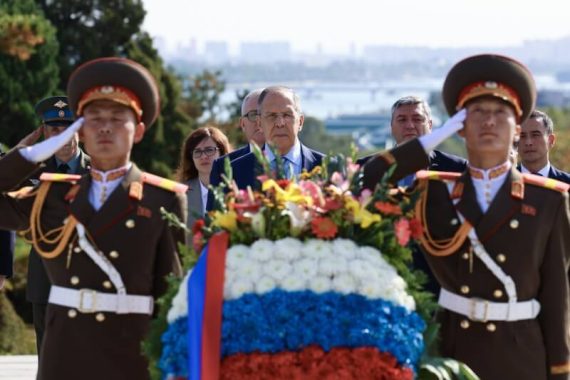T
he recent allegations regarding North Korea’s supply of military equipment and munitions to Russia have provoked international condemnation from countries including South Korea, the U.S., and Japan. These countries have expressed their deep concerns, claiming that such transfers exacerbate the human toll of Russia’s ongoing conflict in Ukraine.
A joint statement, released by the top diplomats from South Korea, the U.S., and Japan, offers a unified stance against what they perceive as a destabilizing factor in an already precarious global situation. South Korean Foreign Minister Park Jin, U.S. Secretary of State Antony Blinken, and Japanese Foreign Minister Yoko Kamikawa together asserted that these weapon deliveries, some of which have been confirmed, “will significantly increase the human toll of Russia’s war of aggression.”
The geopolitical implications of this alliance are manifold. Historically, North Korea and Russia, both engaged in separate confrontations with the U.S. and its allies, have often found common ground in their mutual interests. This bond seems to have tightened recently, as evidenced by North Korean leader Kim Jong Un’s visit to Russia, where he met President Vladimir Putin and toured several key military installations.
Significant shift in the balance of power
The fears of Japan, South Korea and the U.S. aren’t unfounded. Reports suggest that North Korea isn’t just making a one-sided deal; it seeks advanced weapons technologies from Russia to augment its nuclear program. If these speculations hold water, they could represent a significant shift in the balance of power in the region, posing a direct threat to many countries, especially given North Korea’s historic volatility.
The U.S., South Korea, and other concerned nations suspect this alliance to be a two-way street. While North Korea allegedly provides Russia with conventional arms to supplement its dwindling arsenal, Russia, in return, is believed to be supplying North Korea with sophisticated weapons technologies. This would not only bolster North Korea’s nuclear capabilities but could also lead to more reliable and advanced weapons systems.
Russian Foreign Minister Sergey Lavrov, however, dismissed these allegations. During a recent trip to Pyongyang, he emphasized Russia’s appreciation for North Korea’s “unwavering” support in its Ukraine conflict. Upon his return to Moscow, and in response to these claims, he stated that “the Americans keep accusing everyone” and refused to comment further, labeling them as mere “rumors.”
1,000 containers of military equipment
However, contrary to Lavrov’s dismissive stance, the White House recently disclosed evidence suggesting North Korea had indeed delivered over 1,000 containers of military equipment and munitions to Russia. These containers, the U.S. claimed, were transferred to a Russian-flagged ship and subsequently transported via train to southwestern Russia.
The international community’s concerns aren’t limited to the ongoing Ukraine conflict. Since the previous year, North Korea has conducted over 100 missile tests, many simulating nuclear strikes against the U.S. and South Korea. With Russia potentially providing advanced weapon technologies, Kim Jong Un could develop more reliable nuclear weapons systems, threatening global stability.
To counter North Korea’s increasing nuclear prowess, the U.S. and South Korea have intensified their regular military exercises. In a show of collective defense, they have even reinstated some joint training exercises with Japan. This week witnessed the three nations’ armed forces carrying out their inaugural trilateral aerial exercise close to the Korean Peninsula.
Recommended
Maritime exercise
Moreover, South Korea’s navy announced a comprehensive maritime exercise off the Korean Peninsula’s western coast. This training, encompassing live-fire drills, also saw participation from U.S. military helicopters and patrol aircraft.
While North Korea has yet to comment on this maritime drill, it has a history of perceiving such U.S.-South Korean exercises as precursors to invasion, often retaliating with missile tests.
The evolving dynamics in the region underscore the intricate balance of power and the high stakes involved. As alliances shift and nations recalibrate their strategies, the world watches closely, hoping that diplomacy and dialogue will prevail over confrontation.
Sources: The Independent, Japan Today, AP News





